-
Doctors
-
Specialities & Treatments
Centre of Excellence
Specialties
Treatments and Procedures
Hospitals & Directions HyderabadCARE Hospitals, Banjara Hills CARE Outpatient Centre, Banjara Hills CARE Hospitals, HITEC City CARE Hospitals, Nampally Gurunanak CARE Hospitals, Musheerabad CARE Hospitals Outpatient Centre, HITEC City CARE Hospitals, Malakpet
HyderabadCARE Hospitals, Banjara Hills CARE Outpatient Centre, Banjara Hills CARE Hospitals, HITEC City CARE Hospitals, Nampally Gurunanak CARE Hospitals, Musheerabad CARE Hospitals Outpatient Centre, HITEC City CARE Hospitals, Malakpet Raipur
Raipur
 Bhubaneswar
Bhubaneswar Visakhapatnam
Visakhapatnam
 Nagpur
Nagpur
 Indore
Indore
 Chh. Sambhajinagar
Chh. SambhajinagarClinics & Medical Centers
Book an AppointmentContact Us
Online Lab Reports
Book an Appointment
Consult Super-Specialist Doctors at CARE Hospitals

Gynaecologic Oncology
Gynaecologic Oncology
Gynaecological Cancer Treatment in Hyderabad
Gynaecological malignancies are the second most common malignancy among Indian women. It is important to treat these cancers as early as possible. CARE Hospitals provides specialist surgical services for gynaecological cancer diagnosis, staging, treatment & care. This includes:
-
Cervical Cancer
-
Endometrial Cancer
-
Vaginal Cancer
-
Vulva Cancer
Our department offers the full spectrum of cutting-edge surgical techniques, from laparoscopic (keyhole) surgery for cervical and endometrial cancer to ultra-radical pelvic and abdominal surgery for ovarian cancer. We place equal emphasis on preventive oncology and run free cancer screening camps as well as use state-of-the-art colposcopy to diagnose and treat pre-cancers and early cancers.
Our team includes gynaecological cancer surgeons, medical & radiation oncologists, clinical nurse specialists, radiologists, pathologists, and physiotherapists among others. The multi-disciplinary team will work with these women through each step in the management of their care and rehabilitation. The terminally ill are also offered palliative care, pain management, and homecare.
Gynecologic Cancers
Gynaecological cancers usually spread to the pelvis, which is between the hip bones below the abdomen. Gynaecological cancers commonly affect women, including cervical cancer, ovarian cancer, and uterine cancer (endometrial). In addition to these less common cancers, there are cancers of the vulva, vagina, gestational trophoblastic tumours, and fallopian tubes.
Cervical cancer
Cervical cancer is a type of cancer that occurs in the cells of the uterus (neck of the womb), the lower part of a woman's womb that extends into her vaginal area. Women primarily affected by cervical cancer are between 30 and 45 years old. Those under 25 years of age are very rarely affected.
A sexually transmitted infection called Human Papillomavirus (HPV) causes cervical cancer. In the body of a human, when an HPV virus is exposed, the immune system prevents any debilitating effects of the virus. In a small number of women, the virus remains in their bodies for a longer period of time and accounts for the process of creating cancer cells.
A group of HPV viruses that spread via direct contact with a person’s skin, and typically clears up on its own. Our gynecologic oncology providers offer cervical cancer screenings and HPV vaccinations to help reduce your risk of developing cervical cancer.
Key signs of cervical cancer
Symptoms or signs of cervical cancer do not usually appear at an early stage. In some cases, cervical cancer does not show any symptoms until the disease has advanced. Women should schedule cervical symptoms screening appointments as soon as possible.
-
The main symptom to be aware of is vaginal bleeding, which occurs after sexual encounters. During other times, such as between periods or after menopause, you should watch out for unnecessary bleeding.
-
Bleeding or watery vaginal discharge with a foul odour.
-
During intercourse, pain or discomfort in the pelvis.
We suggest screening tests for abnormal vaginal bleeding in women who are at risk for HPV infections. Gynaecologists at CARE Hospital perform colposcopy tests to diagnose cervical cancer cells.
Endometrial cancer
Endometrial cancer occurs in the uterus, a hollow, pear-shaped organ in the pelvis that is responsible for carrying the fetus. The lining (endometrium) of the uterus is where endometrial cancer or uterine cancer starts. As with endometrial cancer, uterine sarcomas also begin in the uterus but are less common than these.
Post-menopausal women are more likely to develop uterine cancer than women of any other age. A woman who has been diagnosed with womb cancer is 1 in 4 postmenopausal.
The symptoms of womb cancer
A woman can detect early endometrial cancer by abnormal vaginal bleeding. When womb cancer is discovered early, oncologists can remove the uterus in order to cure the disease.
The symptoms include,
-
Abnormal vaginal bleeding after menopause.
-
Bleeding between periods.
-
Dark brown blood stains on vaginal discharge.
Ovarian cancer
Gynaecological cancer occurring in the ovaries is known as ovarian cancer. Women of any age can develop ovarian cancer, but most of them are between the ages of 50 and 60. Two ovaries are located on either side of the uterus in the female reproductive system. These produce eggs, estrogen, and progesterone hormones.
It is common for ovarian cancer to go undetected until it has spread to the abdomen and pelvis. When ovarian cancer is detected in its early stages and spreads only to the ovary, it can be successfully treated. As ovarian cancer advances, it becomes more difficult to treat and is more likely to be fatal.
Symptoms of ovarian cancer:
-
Abdominal swelling or bloating
-
While eating quickly feels full
-
Discomfort in the pelvis
-
Frequent urinate
-
Changes in bowel habits like constipation
-
Abnormal bleeding
-
Breathing difficulty
Depending on the stage of cancer, gynaecologist specialists may use chemotherapy or surgery to treat ovarian cancer.
Diagnosis of gynecological cancer
In addition to the tools and tests used to diagnose gynecologic cancer, other factors are taken into consideration, including the patient's medical history and overall health status. Experts at CARE Hospitals create a tailored Gynaecological Cancer Treatment in Hyderabad for each cancer patient based on a detailed diagnosis.
Gynecological cancer can be diagnosed through the following tests:
-
Transvaginal ultrasound: A gynecologic oncologist uses ultrasound to take an image of your damaged vaginal or pelvic tissues in order to determine whether a cyst or tumour exists.
-
Endoscopy: Visualizing the female reproductive system with a flexible and thin tube to detect cancer cells.
-
Imaging studies
-
Computerized Tomography (CT), Magnetic Resonance Imaging (MRI) and Positron Emission Tomography (PET) are used.
Molecular tissue testing can identify specific tumour genes and other characteristics, allowing specialists to tailor treatment to each.
Gynecological cancer treatment
Gynecologic cancer can be treated in several ways, depending on its type and its spread. Women with gynecologic cancer can receive a full range of effective and innovative options for Gynaecological Cancer Treatment in Hyderabad at CARE Hospitals, including laparoscopic surgery, fertility-sparing surgery, and chemotherapy.
Advanced laparoscopic surgery
To treat cancer tissues, laparoscopic surgery is an effective and minimally invasive technique. Compared to other treatment methods, this one requires fewer hospital stays, less discomfort, and a shorter recovery period. During the laparoscopic removal of damaged cells in pelvic organs, our team of gynecologic oncology experts use the laparoscopic method efficiently.
Gynecologic doctors use a laparoscopic method to remove damaged cells during a laparoscopic operation. As a result, specialists are able to operate with greater precision and accuracy without causing undue trauma to the surrounding tissue.
Intraoperative radiation therapy
Cancer is treated with this radiation therapy by using high-energy x-rays. Advanced technology such as this may not be an option for patients who cannot be treated other than by removing damaged tissues from the original tumour. Radiation is delivered directly to the tumour site by our surgeons using high-end equipment. The CARE Hospitals is one of the best medical institutions in India offering this treatment option.
Chemotherapy
Using this treatment method, a special type of medicine is used to shrink or remove cancer. Usually, the drugs used in this method are pills or medicines you take daily, but they are injected directly into your veins. Cancers of the ovary are treated with direct chemotherapy administered directly to the abdomen.
Hormone therapy
Hormones are used in this procedure to prevent the recurrence of various types of gynecologic cancers.
Post-operation care after chemo or surgery for Gynaecologic Oncology
Post-operation care after chemotherapy or surgery in gynecologic oncology is critical for recovery and reducing the risk of complications. Here are the key aspects of care:
- Pain Management
- Medications: Prescribed pain relievers, including opioids and non-opioid analgesics.
- Non-pharmacological methods: Ice packs, heat therapy, and relaxation techniques.
- Wound Care
- Incision care: Keep the surgical site clean and dry. Follow specific instructions for dressing changes.
- Monitoring: Watch for signs of infection (redness, swelling, increased pain, drainage, fever).
- Physical Activity
- Early mobilization: Encouraged to prevent blood clots and enhance recovery, usually starting with light activities.
- Gradual increase: Gradually increase activity levels as tolerated and as recommended by healthcare providers.
- Nutrition
- Balanced diet: Essential for healing, with emphasis on protein, vitamins, and minerals.
- Hydration: Maintain adequate fluid intake.
- Special diets: If recommended, follow any specific dietary restrictions or guidelines provided.
- Monitoring and Follow-up
- Regular appointments: Follow-up visits with the oncologist and surgeon to monitor recovery.
- Blood tests and imaging: May be necessary to assess recovery and detect any complications early.
- Infection Prevention
- Hygiene: Maintain good personal hygiene.
- Avoid exposure: Stay away from crowded places and individuals who are sick, especially during chemotherapy when the immune system is compromised.
CARE Hospitals gynecological cancer specialists treat all types and subtypes of cancer through chemotherapy, intraoperative radiation therapy, medication, and surgery. On the doctor’s recommendation, support services such as genetic testing, counselling, and financial assistance are also available. We provide a comprehensive support service to help your family focus on healing and health.
Our Doctors
-

Dr. Aditi Laad
MBBS, DNB
Woman & Child Institute
View More -
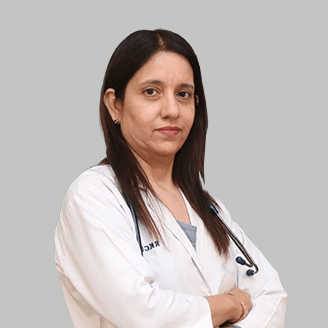
Dr. Chetna Ramani
MBBS, DGO
Woman & Child Institute
View More -
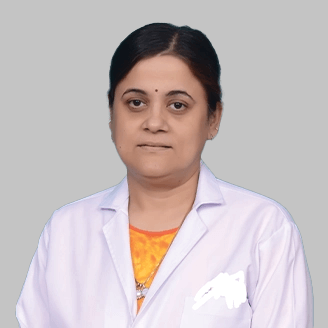
Dr. Sushmita Mukherjee Mukhopadhyay
MBBS, DGO, MD, DNB, FICOG
Woman & Child Institute
View More -
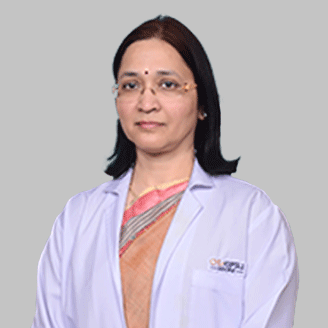
Dr. Neena Agrawal
MBBS, MS, FICOG, Diploma in Gynaecology, Endoscopy
Woman & Child Institute
View More -

Dr. Abhinaya Alluri
MS (OBG), FMAS, DMAS, CIMP
Woman & Child Institute
View More -

Dr. Alakta Das
MBBS, MS (O&G), FMIS
Woman & Child Institute
View More -
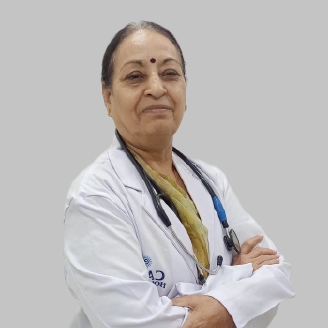
Dr. Alka Bhargava
MBBS, MS
Woman & Child Institute
View More -

Dr. Amatunnafe Naseha
MBBS, DNB, FRM
Woman & Child Institute
View More -
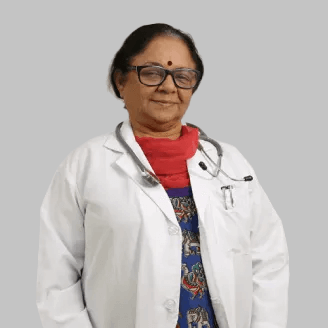
Dr. Aneel Kaur
DGO
Woman & Child Institute
View More -
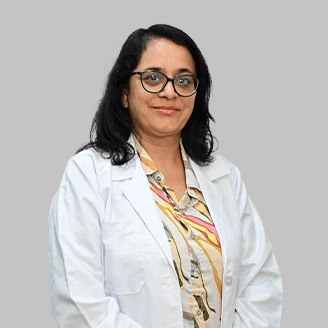
Dr. Anjali Masand
MBBS, MD (OBG)
Woman & Child Institute
View More -
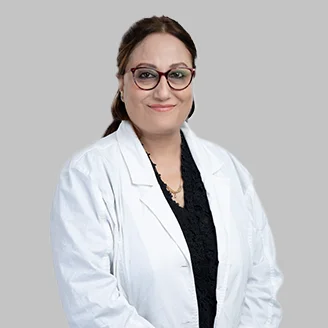
Dr. Arjumand Shafi
MBBS, DGO
Woman & Child Institute
View More -
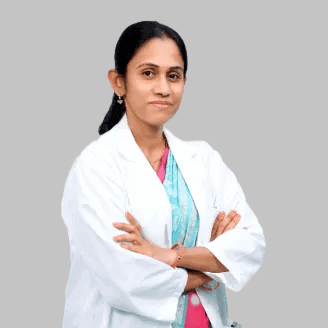
Dr. Kranthi Shilpa
MBBS, MS (ObGyn), FRM, Fellowship in Infertility
Woman & Child Institute
View More -
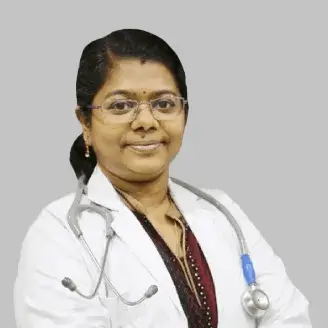
Dr. Krishna P Syam
MBBS, DGO, DNB
Woman & Child Institute
View More -
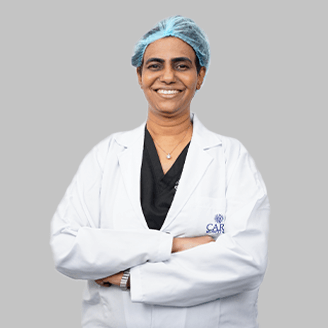
Dr. Manjula Anagani
MBBS, MD (Obstetrics & Gynecology), FICOG
Woman & Child Institute
View More -
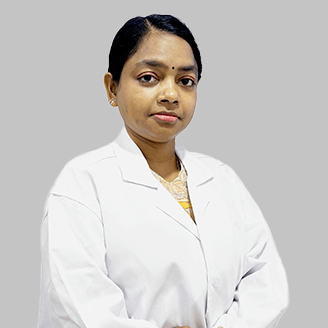
Dr. Moumita Bag
MBBS (WBUHS) DGO (GMC Bhavnagar, Gujarat) DNB Obst & Gynec (KMCH, Coimbatore) AGOI Fellowship in Gynaecologic Oncology (Vps Lakeshore Hospital, Kochi) FMAS (Apollo Hospital, Hyderabad), Fellowship in Robotic Surgery- Intuitive) (Hyderabad)
Woman & Child Institute
View More -

Dr. Muthineni Rajini
MBBS, DGO, DNB, FICOG
Woman & Child Institute
View More -
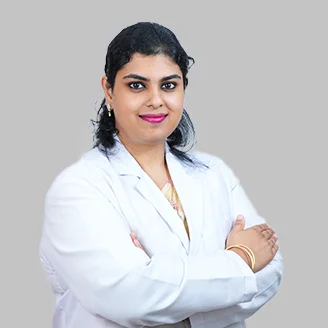
Dr. N Sarala Reddy
MBBS, MS (OBS & GYN), Diploma in IVF & Reproductive Medicine
Woman & Child Institute
View More -
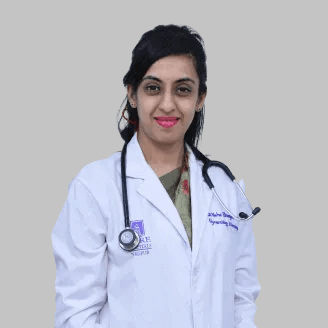
Dr. Neha V Bhargava
MS, DNB (obgyn), MNAMS, Fellow (Gynae Oncology)
Woman & Child Institute
View More -
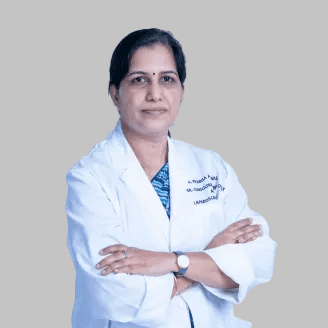
Dr. Prabha Agrawal
MBBS, MD, FMAS, FICOG, Fellowship in minimal access surgery
Woman & Child Institute
View More -

Dr. Pranavi Bommireddy
MBBS, MS in Obstetrics & Gynecology
Woman & Child Institute
View More -

Dr. Prathusha Kolachana
MBBS, MS (Obstetrics and Gynecology), Post-Doctoral Fellowship in Endogynecology (Laparoscopy)
Woman & Child Institute
View More -

Dr. Ruchi Srivastava
MBBS, DGO, DNB
Woman & Child Institute
View More -
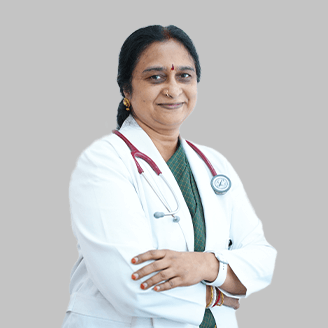
Dr. S V Lakshmi
MBBS, DGO, DNB (OBGYN)
Woman & Child Institute
View More -
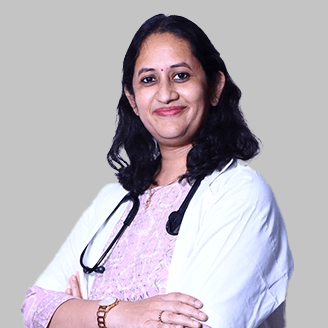
Dr. Sonal Lathi
MBBS, MD, DNB
Woman & Child Institute
View More -
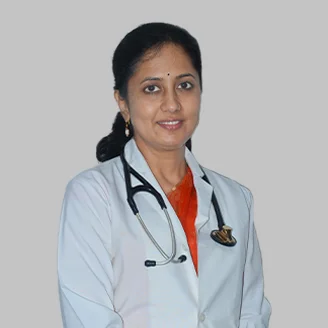
Dr. Sushma J
MBBS, MS (OBG)
Woman & Child Institute
View More -
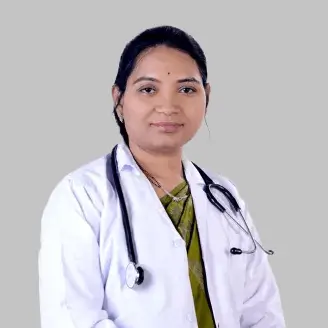
Dr. Swapna Mudragada
MBBS, DGO, MS
Woman & Child Institute
View More
Frequently Asked Questions
Couldn’t find what you were looking for?
Need any help? Get a Call Back.

Still Have a Question?

